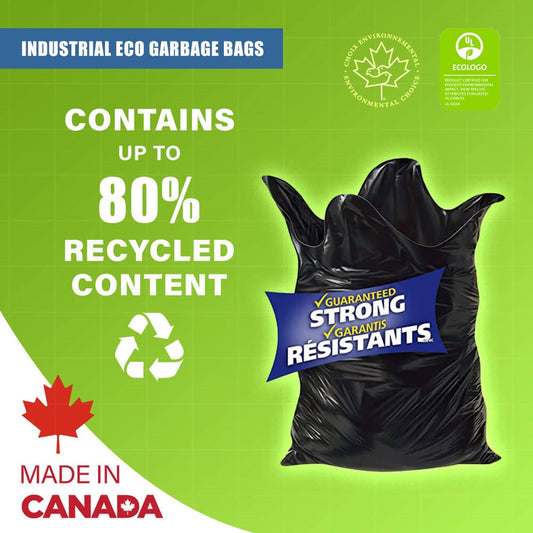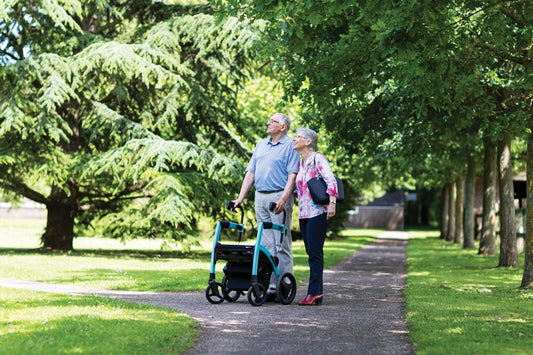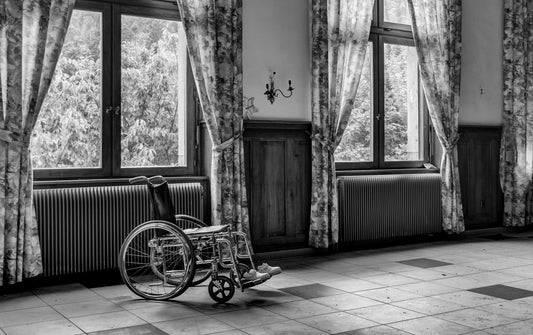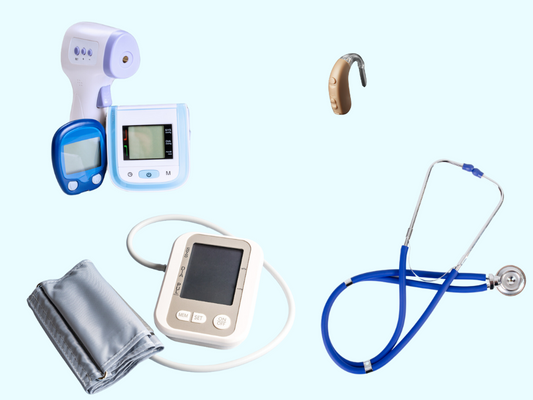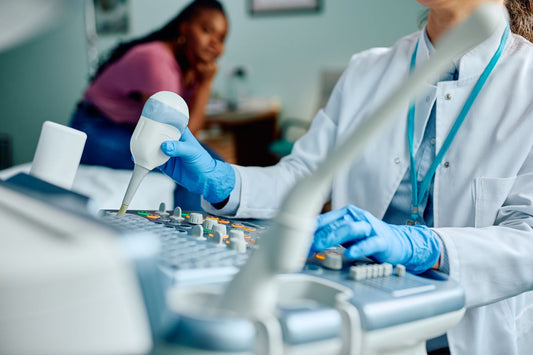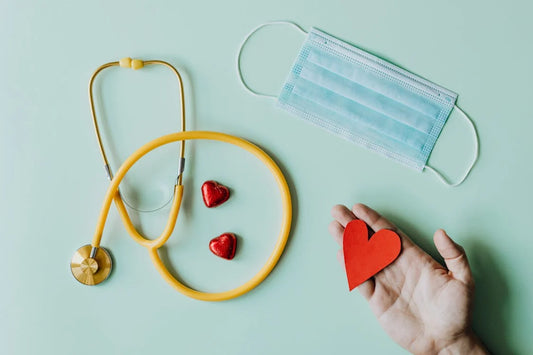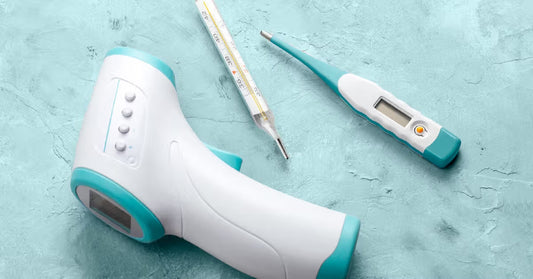
7 Benefits of Wearing a Medical Mask (Besides Covid-19)
Although a face mask is conventionally used to protect against COVID and other infectious diseases, wearing masks offers a multitude of benefits. They may prevent allergy symptoms from getting worse or prevent pollutant exposure.
Not only can wearing a mask help to stop or reduce the spread of germs, but it also protects against allergens and pollution.
Wearing a medical face mask has the primary advantage of protecting your lungs from respiratory threats, including bacteria and dust or smoke particles. If you're sick, wearing a mask can also keep others safe and stop the spread of illnesses.
Let's see how wearing masks can offer other benefits.
Protects You from Poor Air Quality
Wearing a mask offers protection for your respiratory system and overall well-being, especially in environments with poor air quality caused by pollutants. Poor air quality is categorized from moderate to hazardous on the Air Quality Index (AQI), which measures levels of various pollutants regulated by the Clean Air Act:
Carbon monoxide, nitrogen dioxide, and sulfur dioxide: These are gases emitted from motor vehicles and industrial processes.
Particle pollution: These particles consist of sulfate, nitrate, carbon, and mineral dust chemicals, and they contribute to air pollution.
Ground-level ozone: This gas, known as smog when it reaches ground level, originates from atmospheric sources.
Minimizes Allergen Exposure
For individuals prone to pollen allergies or other airborne allergens, wearing a mask can be highly beneficial. Pollen and other irritants can trigger allergic reactions, leading to symptoms such as sneezing, itching, and congestion. By wearing a surgical medical mask that covers both the mouth and nose, individuals can significantly reduce their exposure to these allergens. The mask acts as a physical barrier, preventing pollen particles and other irritants from entering the respiratory system.
Additionally, masks have the added benefit of modifying the moisture and temperature levels of the air being inhaled, which can further mitigate allergy symptoms. This alteration creates a more comfortable breathing environment. It helps alleviate allergic reactions, allowing individuals to better manage their allergy symptoms, especially during peak pollen seasons or in environments with high allergen concentrations.
Prevents Illness
Masks play a crucial role in preventing the transmission of infectious diseases, particularly those spread through respiratory droplets. When an infected person coughs, sneezes, or talks, respiratory droplets containing viruses or bacteria are released into the air. Wearing a mask helps intercept these droplets, reducing the likelihood of them being inhaled by others nearby. By creating a barrier between the wearer's respiratory system and potential pathogens, masks, especially an N95 mask, effectively block the transmission of illnesses from person to person.
Research studies examining the effectiveness of masks in preventing the spread of COVID-19 have shown that individuals who wear masks are partially protected from exposure to infectious droplets containing the SARS-CoV-2 virus.
This protection is critical in situations where maintaining physical distance from others may be challenging, such as in crowded indoor settings or during close social interactions. Overall, wearing a mask is a simple yet effective measure that can significantly reduce the risk of contracting respiratory infections and help protect both individuals and communities from illness.
Safeguards Immunocompromised Individuals
An N95 particulate respirator is a vital protective measure for those with weakened immune systems, shielding them from exposure to harmful pathogens that could lead to severe illness. Immunocompromised individuals, whose immune systems are compromised and unable to function effectively, are particularly vulnerable to infections.
This immune system impairment can stem from various factors, including chronic diseases like diabetes or cancer, immunologic conditions such as HIV, and treatments that suppress immune function, like radiation therapy.
Prevents Transmission of Germs
A KN95 mask safeguards against illness and acts as a barrier to prevent the spread of pathogens by sick individuals. By wearing a mask, individuals reduce the risk of expelling respiratory droplets containing germs into the surrounding environment. This proactive measure helps minimize the transmission of infectious diseases to others, promoting overall public health and safety.
Safeguarding Vulnerable Populations
Masks play a critical role in protecting individuals who are immunocompromised, elderly, or dealing with chronic health conditions. These demographics face heightened risks of severe illness and complications from respiratory infections due to weakened immune systems or underlying health issues.
By wearing masks, these vulnerable groups receive essential protection against airborne pathogens, lowering their chances of contracting infectious diseases such as COVID-19, influenza, and respiratory syncytial virus (RSV). Masks act as a barrier, filtering out potentially harmful particles and providing peace of mind and confidence for vulnerable individuals as they go about their daily activities.
Promoting Overall Public Health
The widespread adoption of mask-wearing significantly contributes to improving public health outcomes on a broader scale. By reducing the spread of infectious diseases, masks help disrupt the chain of transmission within communities, thereby lessening the overall disease burden and preventing outbreaks. This proactive approach not only safeguards individuals but also strengthens healthcare systems by relieving pressure on resources such as hospital beds, medical supplies, and healthcare personnel.
Furthermore, mask-wearing encourages respiratory health and hygiene practices, fostering a sense of collective responsibility and solidarity within society. Ultimately, these collective efforts result in tangible benefits for communities, including fewer sick days, decreased hospitalizations, and reduced healthcare costs, ultimately enhancing overall public health outcomes and quality of life for everyone.
Who Should Use Masks?
Masks are recommended for all healthy children and adults when deemed necessary. If you are unwell or at high risk of severe illness, consult a healthcare professional to determine the appropriate circumstances for mask usage. Specific individuals may be unable to wear masks, including:
- Children under the age of 2
- Individuals who require assistance to don or remove a mask
- Those experiencing difficulty breathing
- Individuals with specific disabilities that hinder mask-wearing, such as sensitivity to facial coverings
Current COVID-19 Mask Guidelines and Usage It's crucial to understand when mask-wearing is mandated and appropriate. Find the best N95 masks in Canada that should fit snugly without being overly tight or loose. Additionally, they should offer high filtration capabilities against particles and droplets, as measured by a percentage
The most reliable masks are those approved by the National Institute for Occupational Safety and Health. They boast tight fits and filtration rates exceeding 95%, and when worn correctly, they provide optimal protection.
